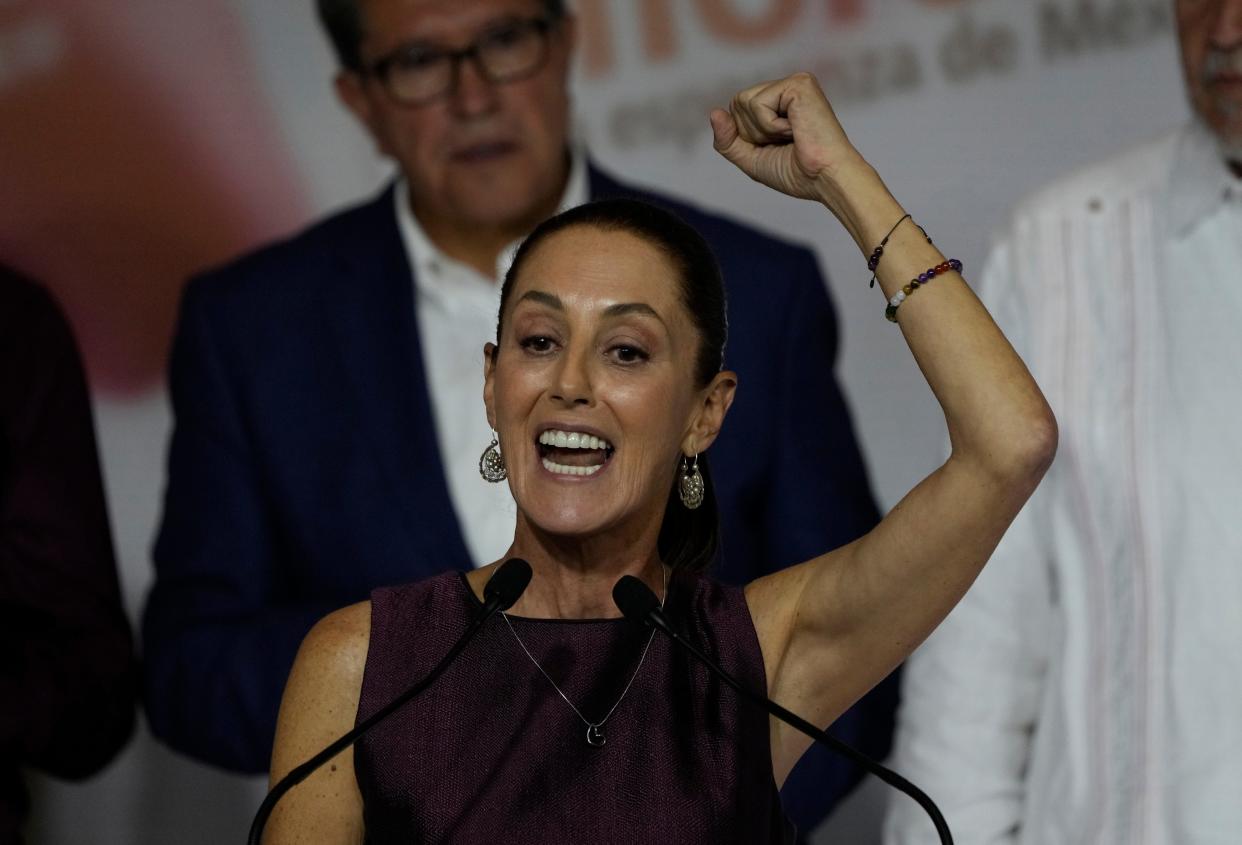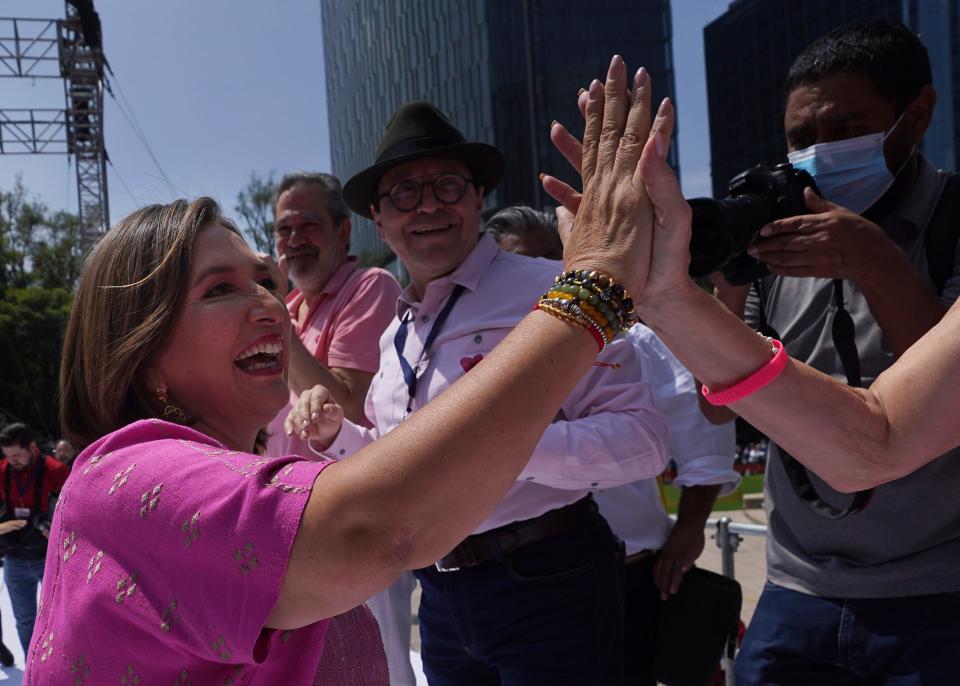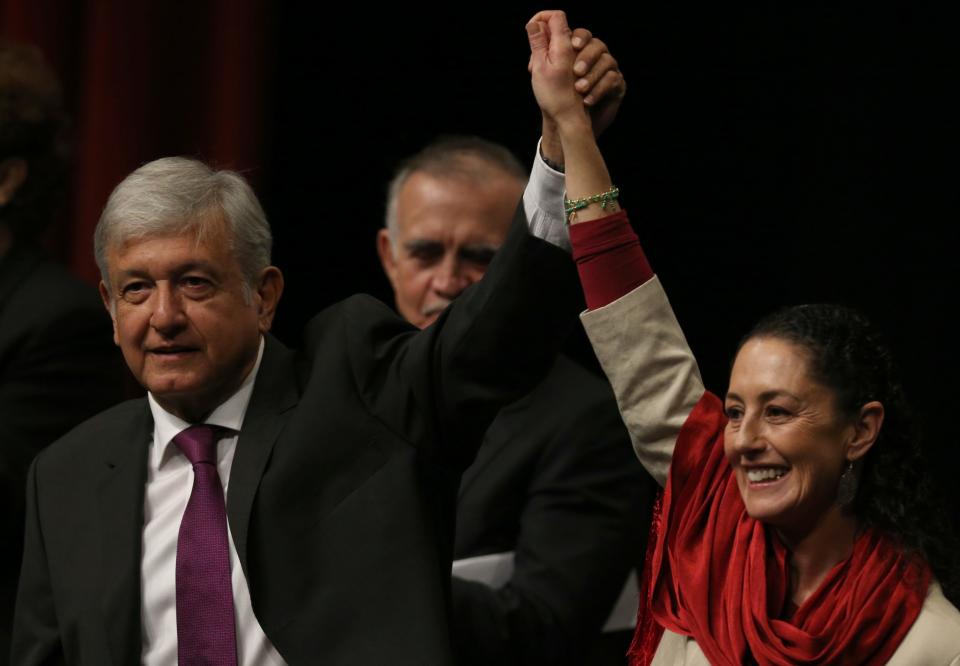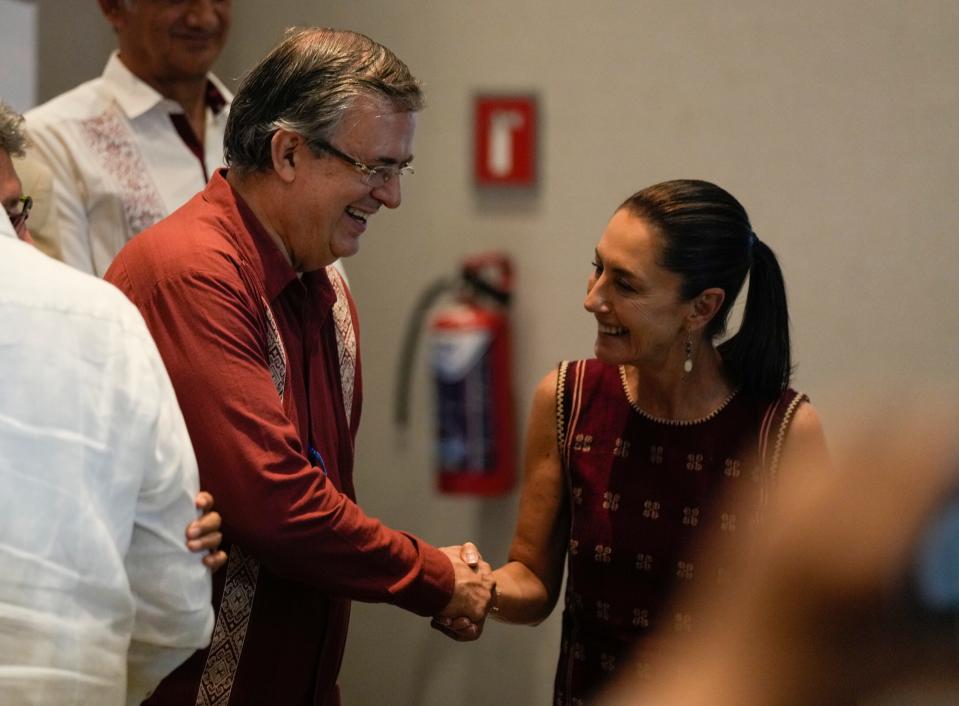Mexico to elect its first woman president in 2024

- Oops!Something went wrong.Please try again later.
- Oops!Something went wrong.Please try again later.
Mexico’s ruling party, Morena, has selected former Mexico City mayor Claudia Sheinbaum as its candidate for the 2024 presidential election.
Sheinbaum, 61, will face Xóchitl Gálvez, a candidate for an opposition coalition made up of the PRI, PAN, and PRD parties — traditional competitors who have united to unseat Morena.
With both the ruling party and its main opposition choosing women candidates, it is certain that Mexico will elect its first woman president in 2024. Currently, polls favor Sheinbaum over Gálvez, a former senator.

The 2024 election will be held in June, with the winning candidate inaugurated in December. In Mexico, presidents serve a six-year term and cannot run for re-election.
Sheinbaum grew up in Mexico City and studied physics and then environmental engineering at National Autonomous University of Mexico (UNAM). During her doctoral work, she spent four years at the Lawrence Berkeley National Laboratory in California, where she researched energy consumption trends in Mexico and other countries. She earned a Ph.D. from UNAM, where she later became a professor. She served on the Intergovernmental Panel on Climate Change, a body of the United Nations, as a part of the team that won a Nobel Peace Prize in 2007.
When President Andrés Manuel López Obrador was mayor of Mexico City, he appointed Sheinbaum as environmental minister of the city. She would then become mayor of Mexico City, the first woman and the first Jewish person to serve in that role, in 2018, resigning in June of this year to run for the Morena presidential candidacy.

Sheinbaum’s main competition for the candidacy was Marcelo Ebrard, who served the López Obrador administration as its foreign minister.
Ebrard criticized the party’s selection, which is based on a series of internal polls, as reminiscent of the “dedazo” (hand-picked) used by presidents of the ruling PRI during most of the 20th century to hand-pick their successors.
Ebrard, unlike Morena’s other pre-candidates, did not attend the meeting where Sheinbaum’s nomination was officially announced and it is unclear if he has plans to challenge her after initially calling for the party’s polls to be “redone.”

For her part, Sheinbaum accepted the nomination with confidence and called for party unity.
“Today we have more freedom. Today we have a living movement that will continue working for the transformation of our country,” Sheinbaum said in her acceptance speech Wednesday night.
“There will be a (female) president and she will be from the Fourth Transformation,” she added, referring to the title that López Obrador uses for his administration’s promises on reform and change.
Though she has presented herself as a candidate who will carry on López Obrador’s legacy, Sheinbaum likely represents an important departure from the outgoing president, especially in the areas of energy and environmental policy.
While she has not openly criticized López Obrador’s oil-centric energy investments, she is expected to focus more on renewable energy because of her background in environmental science.
This article originally appeared on El Paso Times: Steinbaum vs Gálvez: Race to become Mexico's first female president
